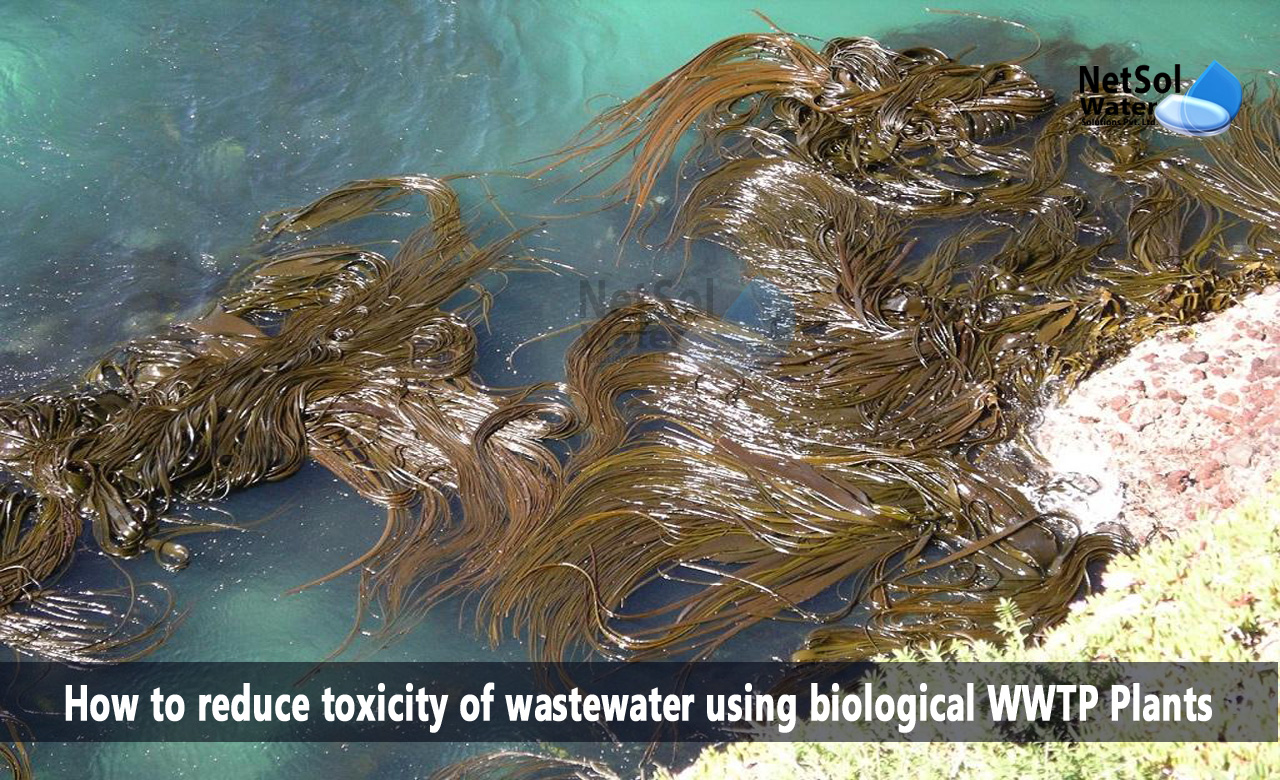Whole Effluent Toxicity (WET) is the collective toxic impact of all contaminants, present in a facility's wastewater on aquatic life. The Clean Water Act forbids the discharge of dangerous pollutants in toxic quantities. WET tests assess the impact of wastewater on the survival, growth, and reproduction of particular test organisms.
Toxicity is important when it comes to water!
Toxicology concerns must be taken into consideration when treating wastewater. After all, this is water, and someone is constantly downstream.
How to reduce toxicity of wastewater using biological WWTP Plants?
The majority of the time, biological wastewater treatment uses naturally occurring bacteria, to aerobically cleanse wastewater while consuming substances that would otherwise degrade the environment and have an adverse effect on human health.
Operators in a wastewater facility expedite the procedure and work with a smaller footprint. To support the bacteria that work best for us, we modify the food to mass ratio, retention period, and sludge age. For nitrifiers, we pay attention to alkalinity and increase oxygen levels to reduce BOD and ammonia levels.
Then, we decrease dissolved oxygen to promote denitrification. To some extent, each of these processes happens in nature.
What is bioremediation?
A subfield of biotechnology, "bioremediation", uses live organisms, like bacteria and microorganisms, for the removal of contaminants, and pollutants, and toxins from soil, water, as well as other environments.
Clean up of contaminated groundwater or environmental issues like oil spills, may be accomplished via bioremediation.
Process of Bioremediation
It depends on promoting the growth of specific bacteria which use pollutants, like oil, solvents, and pesticides, as well as food and energy sources. These microorganisms transform harmful substances into innocuous gases, like carbon dioxide and small amounts of water.
The proper combination of temperature, nutrition, and food is necessary for bioremediation. The remediation of pollutants may take longer if certain components are missing. By introducing "amendments" to the environment, such as molasses, vegetable oil, or plain air, it is possible to improve circumstances that are adverse for bioremediation. These modifications enhance the circumstances for bacteria to thrive, hastening the bioremediation process's conclusion.
Positive aspects of bioremediation
Compared to other clean up techniques, bioremediation has many benefits. It minimizes harm to ecosystems by just using natural methods. In order to remove toxins from soil and groundwater, bioremediation frequently takes place underground, where pumped-in nutrients and bacteria can be used. As a result, compared to other clean up techniques, bioremediation causes less disruption to the neighbourhood communities.
There are not many hazardous by products produced during the bioremediation process. Finally, because it doesn't require a lot of work or expensive equipment, bioremediation is less expensive than the majority of clean up techniques.
Types of Bioremediation
1. Bio stimulation: By activating microbes with chemicals or nutrients, the remediation process can start.
2. With bioaugmentation, microorganisms are added to the contaminated area's surface, and allowed to proliferate there. It is mostly employed to get rid of contaminated soil.
3. Using the local microbiome of the impacted area, intrinsic bioremediation transforms dangerous chemicals into harmless ones.
Conclusion
Typical sewage or wastewater treatment plants are not intended to remove micropollutants, like pesticides, pharmaceuticals, and nano-sized metals, which are primarily discharged from sewage treatment plants, and are a major concern for sustainable human and ecological systems.
Instead, they are designed to remove organic and nutrient-rich materials from municipal sewage water. Because, of the untreated pollutants in STP (sewage treatment plant) effluents, there are still environmental dangers even after contaminants have been removed by wastewater treatment methods. We need biological activities in wastewater treatment plants, such as bioremediation, to reduce toxicity via the treatment process.
How can we assist?
Netsol Water offers a wide range of wastewater treatment solutions, such as water softeners, wastewater treatment plants, sewage treatment plants, water treatment plants, RO Plants, as well as sewage treatment plants for various industries, for the removal of toxic chemicals.
Netsol Water is Greater Noida-based leading water & wastewater treatment plant manufacturer. We are industry's most demanding company based on client review and work quality. We are known as best commercial RO plant manufacturers, industrial RO plant manufacturer, sewage treatment plant manufacturer, Water Softener Plant Manufacturers and effluent treatment plant manufacturers. Apart from this 24x7 customer support is our USP. Call on +91-9650608473, or write us at enquiry@netsolwater.com for any support, inquiry or product-purchase related query.



